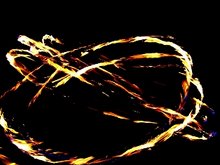There is no incorporeal good and evil in the world for that which exists is the one with good thoughts and the one with evil thoughts.
1. Good and evil are two elements of thought, and nature of a person is related to man’s thought and reasoning.
2. The measure for distinguishing between good and evil is the knowledge and comprehension.
3. Good and evil have no meaning without the presence of free choice and will.
4. The wise one who is in harmony with the truth consciously chooses the virtuous path and harmonizes himself with the order of nature, avoiding deceptions and lies. The ignorant one who Hs been diverted from the true path follows aberration.
5. The worship of Ahura Mazda is in harmony with true thought truth and probity and it is this that leads man to the realm of glory.
6. Life and no life movement and stagnation, come about through the collision of good and evil. Productive life comes in the shelter of good and truth. Evil and ugliness are brought about lies and trickery culminating in Non-life or stagnation.
7. The followers of truth have the best minds and the followers of lies have within themselves the worst manner of thought.
8. This will continue until the end of man’s life and the collision of good and evil will determine man’s path in life.
9. Good delights in correct and chaste behaviour.
10. The ignorant one who carries the worst manner of thought of demeanour within themselves destroys others.
11. Absolution comes about through a peaceful conscience. He who has good within him will find true joy and he who is restless within carrying within himself the worst manner of thought will never find the light of joy.

